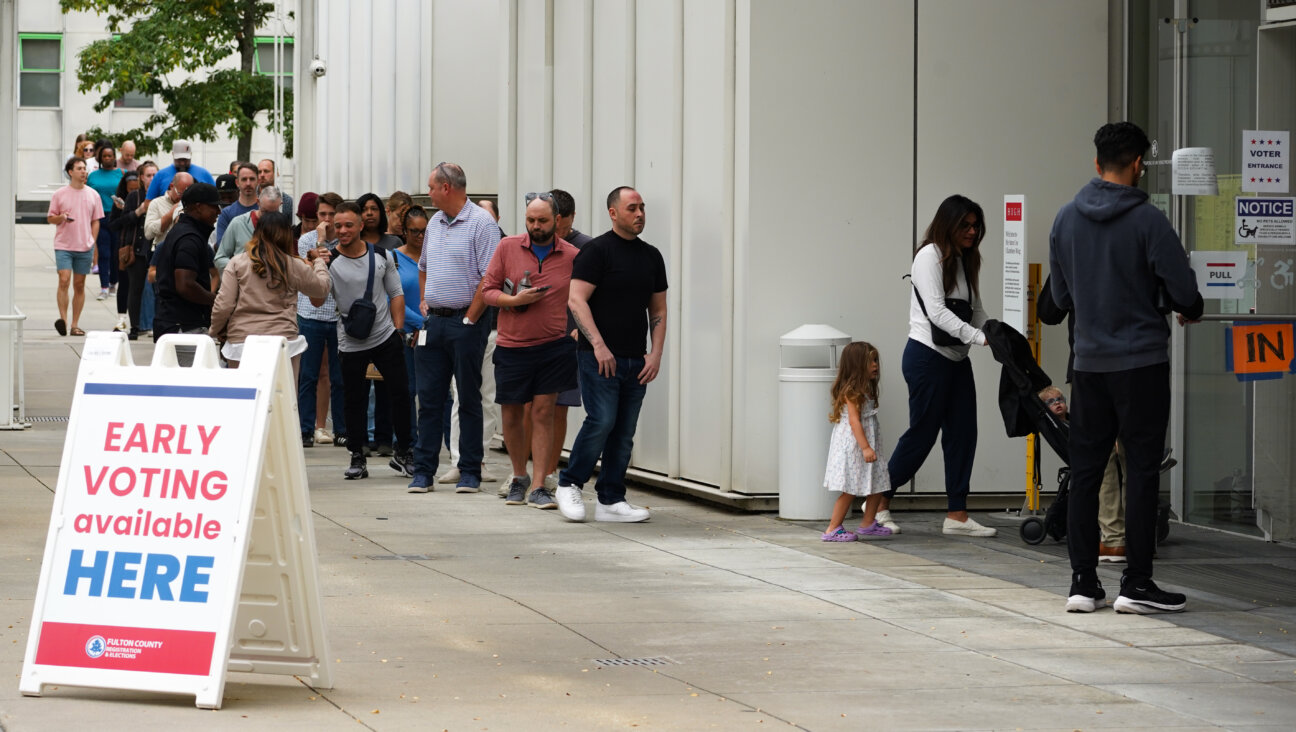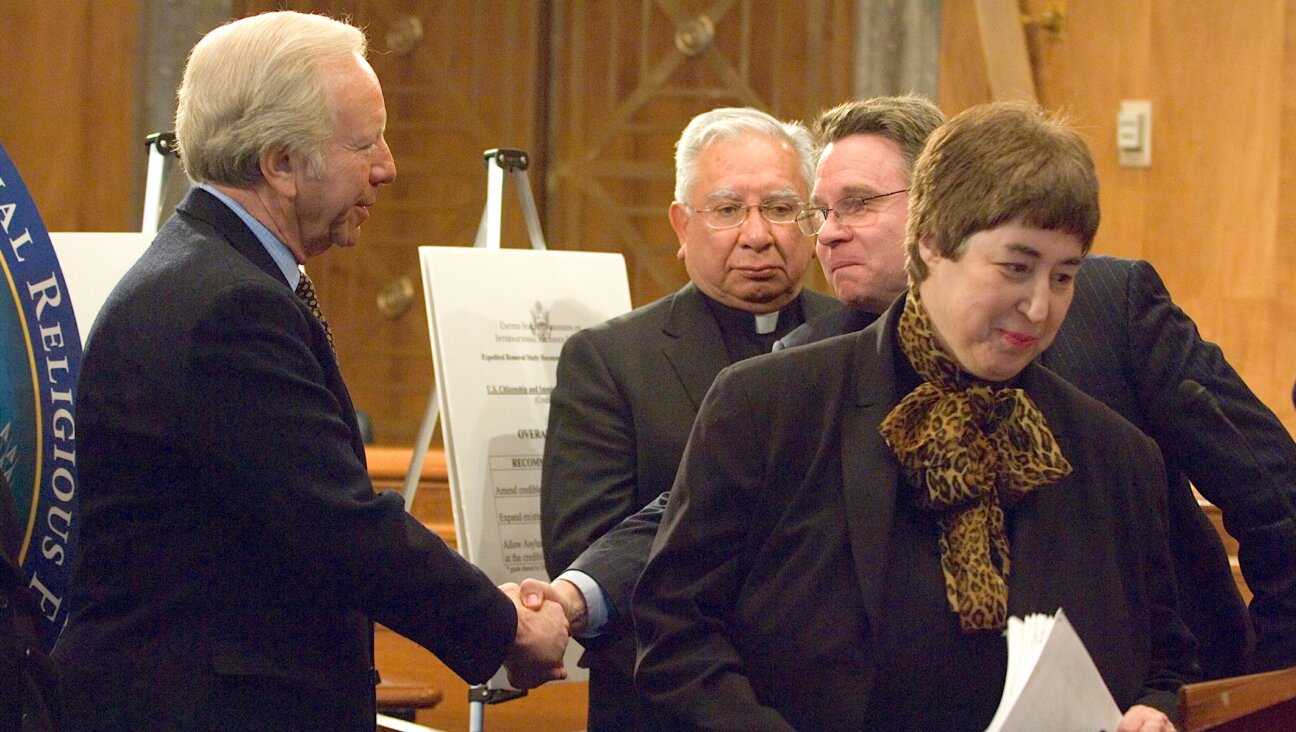We Live in a World of Judaisms
At our Seder table, the Four Questions are introduced by a brief commentary noting that they are meant as illustrations of question-asking, be the questions trivial, picayune or cosmic. Anything goes. (Except, of course, “When do we eat?”)
In that spirit, I’ve decided that it may be useful now and then to pose questions that arise out of the ongoing Haggadah of our lives. (Do bear in mind what Rabbi Nachman of Bratslav said: “As your answers have become my questions, perhaps my questions may become your answers.”)
So, for starters: Who is a Jew? It’s back on the front burner in Israel just now, in an especially vexing, even scandalous, way.
A woman converted to Judaism 15 years ago and was married. She and her husband have lived in Israel all the while, had two children, and recently decided to divorce. Marriage and divorce in Israel are the exclusive domain of rabbinic courts.
In the course of examining the plea for divorce, one of the judges inquired as to the woman’s compliance with “the yoke of mitzvah,” the acceptance of which is an explicit condition of conversion. Upon learning that the woman had never been observant, the court ruled that her conversion itself had been invalid; neither she nor her children, therefore, were Jewish, and consequently there was no need for a divorce, since their marriage was treyf.
I will spare you the endless details of the controversy; galaxies of detail can readily be found all over cyberspace. The operative bottom line is that all conversions performed by Rabbi Haim Druckman, who has headed the state agency that manages conversion, are potentially (or actually, depending on which authority you listen to) null and void.
In part, the imbroglio reflects a difference in worldview between Haredi Jews, those often referred to as “ultra-Orthodox,” and the rest of the Orthodox world. How open and tolerant should Judaism be?
But in larger part the problem arises from an ongoing and evidently implacable disagreement regarding religion and its role in the modern state — and also, oddly, from a specific demographic development.
The Haredi reading of Judaism is literalist and fundamentalist. Indeed, it is not “a reading”; it is the thing itself. The Jewish religious tradition, which is divinely ordained, is not a matter of opinion or personal preference. It is precise, comprehensive and binding. Its interpretation and application are the domain of recognized authorities. End of discussion.
Quite unlike the American fundamentalist movements that are so prominent in this country, the Israeli version operates with the full power of a modern state paying the salaries of its functionaries and providing it formal space to enforce its views.
That version becomes positively wacky when we recognize that the conversion controversy has been impossibly compounded by the vast number of immigrants to Israel from the former Soviet Union who are either not Jewish at all or whose Jewish pedigree is open to question. Estimates vary widely, but there are probably on the order of 300,000 people who fall into that category. Their admission to Israel under the Law of Return may be viewed as an instance of humanitarian inclusiveness — who, after all, is going to check the paper trail for each person with some sort of claim to being Jewish? — or of a misguided endeavor to increase the proportion of Jews in the Jewish state.
Just how misguided can be seen in the proliferation throughout Israel of Russian churches, in the insistence by Israeli army inductees that they be sworn into their military service on Christian bibles, and, latterly, on the return to the former Soviet Union of significant numbers, now that economic circumstances there have changed.
The Druckman conversion system was, in effect, devised by Ariel Sharon to expedite the traditionally sluggish conversion process. And now, this: Retroactively, converts who were less than wholehearted in their vows to lead an observant life are not Jewish — and even those whose hearts may have been whole at the time but who have since strayed into cheeseburger land may be cast out.
Way back, in the wake of the Holocaust and because of political exigency, too, the idea of carving a public space for the exotic and esoteric cult of Haredi Jews, so unbearably mauled in Europe, seemed like a no-brainer. The tide of history was manifestly not in their favor, and little harm would be done by indulging them in their waning years. But as we now know, history is tricky, and it is today the case that the Haredi community is doing the carving.
The current estimate is that by the year 2012 — around the corner — one-third of Israel’s elementary school students will be Haredi, their education essentially independent of state standards.
What we are left with, therefore, is a system that cannot yet be called theocratic — the scope of Haredism is still constrained by a large body of secular law — but that is increasingly incompatible with the world most of us inhabit. And if the Enlightenment has proved less enlightened than we imagined and expected, the benighted alternative now so vigorously embraced by a growing number of Israelis can no longer be accepted as a quaint Amish-like tourist attraction. It is, instead, a swelling danger.
Israel is not even within hailing distance of readiness to deal with the danger. So people outside the world of Orthodoxy grouse and grumble, but know (or believe) there’s no real remedy, not now.
But ought we not — at last, the question — at the least acknowledge and defend the principle that short of a radical separation of church and state in Israel, the issue of who may be considered a Jew will ooze onward, bringing ruin to the state and ultimately to Judaism itself? Or: Is it not time to say, boldly, that we live in a world of Judaisms, none of which warrants exclusive claim to state sponsorship?
A message from our CEO & publisher Rachel Fishman Feddersen

I hope you appreciated this article. Before you go, I’d like to ask you to please support the Forward’s award-winning, nonprofit journalism during this critical time.
At a time when other newsrooms are closing or cutting back, the Forward has removed its paywall and invested additional resources to report on the ground from Israel and around the U.S. on the impact of the war, rising antisemitism and polarized discourse.
Readers like you make it all possible. Support our work by becoming a Forward Member and connect with our journalism and your community.
— Rachel Fishman Feddersen, Publisher and CEO























